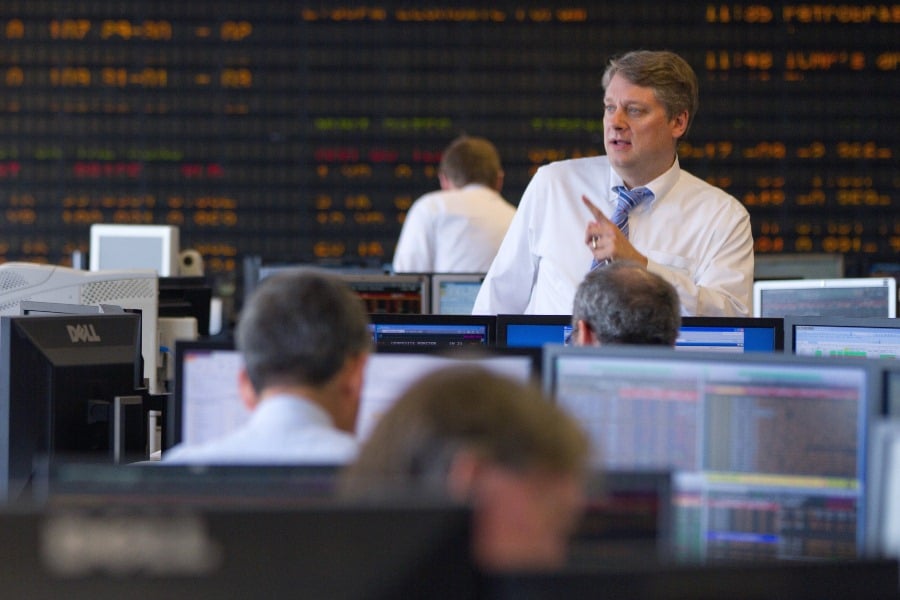Bill Gross' successor Daniel Ivascyn quietly has pulled off a stunning performance.
As Pacific Investment Management Co. watched its flagship fund lose more than half its assets following the surprise departure of Bill Gross, his successor Daniel Ivascyn quietly pulled off a stunning performance.
Over five years, three years and again this year, Mr. Ivascyn's $51.2 billion Pimco Income Fund is beating at least 98% of peers. Over all those stretches, it had higher returns and lower volatility than peers, including the biggest bond funds run by competitors including DoubleLine Capital and TCW Group.
“The fund's risk-adjusted performance is nothing short of phenomenal,” said Steven Roge, who held his stake in Pimco Income even after selling Pimco Total Return. Mr. Roge helps oversees more than $200 million at R.W. Roge & Co. in Bohemia, New York.
http://www.investmentnews.com/wp-content/uploads/assets/graphics src="/wp-content/uploads2015/12/CI1027111130.PNG"
The fund's success is critical to the future of Pimco, where Mr. Ivascyn, 46, was promoted to head the investing team when Gross left for Janus Capital Group Inc. Investors poured a net $12 billion into the fund since then, a period in which the flagship Pimco Total Return fund lost $131 billion. Money coming into Pimco Income in October fueled the first net inflows for the firm in more than two years.
Mr. Ivascyn, who has run the Income fund since its 2007 inception, and co-manager Alfred Murata, who joined in 2013, have flourished by buying a blend of higher-yielding and safer assets. The former provide the fund with a steady flow of income, while the latter cushion losses in periods like this year's third quarter, when riskier investments such as high-yield and emerging-market bonds tumbled.
IVASCYN'S BET
Much of the long-term performance stems from a decision by Mr. Ivascyn during the 2008-2009 financial crisis to bet on home loans without the backing of the federal government, known as non-agency mortgages.
The securities, which collapsed during the housing bust, have rebounded as the U.S. property market returned to health. They gained an estimated 32% in 2009 and 28% in 2012, according to Bryan Whalen, a money manager at TCW. They're up a more modest 3% this year, outpacing the 0.8% gain in the Barclays U.S. Aggregate Bond Index.
“A lot of the challenges impacting the global economy have been positive for the U.S. homeowner,” said Mr. Ivascyn, who mentioned historically low interest rates and depressed oil prices. The mortgages represented 27% of Pimco Income as of Oct. 31.
Other funds that have benefited from the run-up in non-agency mortgages include the $51.1 billion DoubleLine Total Return Bond Fund, which had 22% of the portfolio in such assets as of Oct. 31; the $69.4 billion Metropolitan West Total Return Bond Fund, with 9.3%; and the $4.9 billion Angel Oak Multi-Strategy Income Fund, with 56% as of Sept. 30. None of them is beating the Pimco fund this year or over three years.
'HARD TO KEEP UP'
Unlike the MetWest and DoubleLine funds, which also have attracted big inflows since Gross's departure, Pimco Income isn't considered a core bond fund. It generally invests in higher-risk parts of the market, including high-yield and emerging-market securities, and has had a higher dividend yield than more traditional bond funds. Morningstar calls it a multisector bond fund, and ranks it in the top percentile for this year, three years and five years.
Analyst Eric Jacobson of Morningstar Inc. called the fund's non-agency investment “a once in a lifetime opportunity,” for both the magnitude and longevity of those gains. Fund investors should be prepared for more modest performance in the future, he said.
“They have been at the top of their category for a long time,” Mr. Jacobson said. “That is going to be very hard to keep up.”
The performance of the income fund helped Mr. Ivascyn's ascent to the top of Pimco, where he oversees investments as group CIO. Assets under management at the Newport Beach, Calif.-based firm have plunged to $1.47 trillion as of Sept. 30 from a high of about $2 trillion in 2013.
NO SPOTLIGHT
In addition to the income fund, Mr. Ivascyn also runs the $6.9 billion Pimco Unconstrained Bond Fund, whose assets have declined 68% since August of last year. The Pimco Total Return Fund, run for decades by Mr. Gross and now overseen be a team of three managers, has shrunk to $93.7 billion as of Oct. 30, less than a third of its April 2013 peak.
Unlike Mr. Gross, who is a frequent guest on radio and television, Mr. Ivascyn has shied from the spotlight, said Scott Simon, a former Pimco managing director who hired both Ivascyn and Murata more than a decade ago.
“Ivascyn simply wants Pimco to be good,” Mr. Simon said in a phone interview. “It's not about one guy and it's not about one fund.”
Apart from gains from mortgage investments, Ivascyn said the fund has profited from a bet that a weakening Chinese economy would translate into lower interest rates in Australia, a key supplier of raw materials to China.
MANAGING RISK
In the third quarter, a FTSE index of 7-10 year Australian government bonds climbed 3.2%. U.S. high-yield bonds lost 4.9%, according to the Bank of America Merrill Lynch index.
Mr. Ivascyn and Mr. Murata avoided some of the obstacles that tripped up other managers this year. The fund had minimal exposure to emerging-market currencies, which have plunged against the dollar, and energy bonds, which have been hurt by the slide in oil and gas prices.
They ventured into energy when they saw opportunity. The fund holds bonds issued by Moscow-based Gazprom PJSC, the world's largest natural gas producer, one of which matures in 2034 and returned 19% this year.
“A lot of active managers head for the hills when there is uncertainty,” Mr. Ivascyn said. “We are willing to take a risk when we are paid to take it.”







